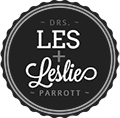Even if we feel guilty, God is greater than our feelings, and he knows everything. I John 3:20
Scientists call it “metamood.”
It’s the ability to pull back and recognize that “what I’m feeling is anger,” or sorrow, shame or whatever.
It’s a difficult skill because our emotions so often appear in disguise. A person in mourning may know she is sad, but she may not recognize that she is also angry at the person for dying – because this seems somehow inappropriate.
A parent who yells at the child who ran into the street is expressing anger at disobedience, but the degree of anger may owe more to the fear the parent feels at what could have happened.
The boss who feels attacked by an employee’s question about a new policy may be completely unaware that the innocent question seems aggressive to him only because his father used to ask the same kinds of things to point out his shortcomings.

You cannot make yourself feel something you do not feel, but you can make yourself do right in spite of your feelings. –Pearl S. Buck
Not recognizing how we really feel is one of the most common and troubling blind spots we have as human beings.
When we don’t see how we really feel, our emotions start to manage us rather than the other way around. We begin to mask our emotions, literally.
We may be ticked off at our spouse who’s late in meeting us at an appointed time, but if anger is too threatening, we simply smile and ignore our churning stomach. Later that evening, we find ourselves snapping at our spouse for no good reason at all. And only later wondering: Where did that come from?
When we don’t acknowledge our true emotions we give up our ability to control them. They bleed into other areas of our life where they have no right to be.
Reflect and Respond
What emotion do you need to acknowledge you’re feeling – an emotion you may not want to admit is there?
Go ahead, tell us in the comments.
Related Resource
The first steps to improving this single most important factor in any marriage or love relationship are to identify your fear factors and determine your personal communication styles, and then learn how the two of you can best interact. In this no-nonsense book, “psychobabble” is translated into easy-to-understand language that clearly teaches you what you need to do – and not do – for speaking each other’s language like you never have before. Kit includes one softcover Love Talk book, one Workbook for Women, one Workbook for Men.


This is a sore one for me. I try not to be too governed by my emotions, so control the tongue and out in check the feeling telling myself it is selfish and not a big deal. Totally by the supper time or shortly after I find it’s not so checked after all. Usually my husband and eldest son get the brunt of it.
I wonder if feelings are included in Jesus’ “You will know the truth and the truth will set you free” idea. There can’t be too many truths more important than the truth about how we feel.
Excellent points, especially in our culture
where people are easily governed by their
feelings. Elizabeth Elliot’s book, “discipline,
The Glad Surrender,” gives further insight that
are feelings are not to control us. We are to
submit to the leading of the Holy Spirit. Elliot
is an excellent example of such control, after going
to live & share Christ with the tribe who killed her
husband.
I’m a little confused by this. It sounds like a good opener, but is this book going to explain how a person gets in touch with their emotions if they are out of touch with them? Or is it just mean to be an interesting statement. I would find it useful to explore the ideas of acting out on wrongly identified emotions, but I’m not sure if that is what the advertised book is for or not. For instance, my husband basically identifies most emotions as anger. What is the resource to help identify things as something other than anger and how to work through it?
My rule of thumb is “ignore the crazy thoughts” and shut up until I can speak the truth in love to my spouse.
Go to the Petsmart store, they have many different dog beds and many have a top cover that zips off to be waehsd. You can also shop on=line under pet web-sites.References : Was this answer helpful?